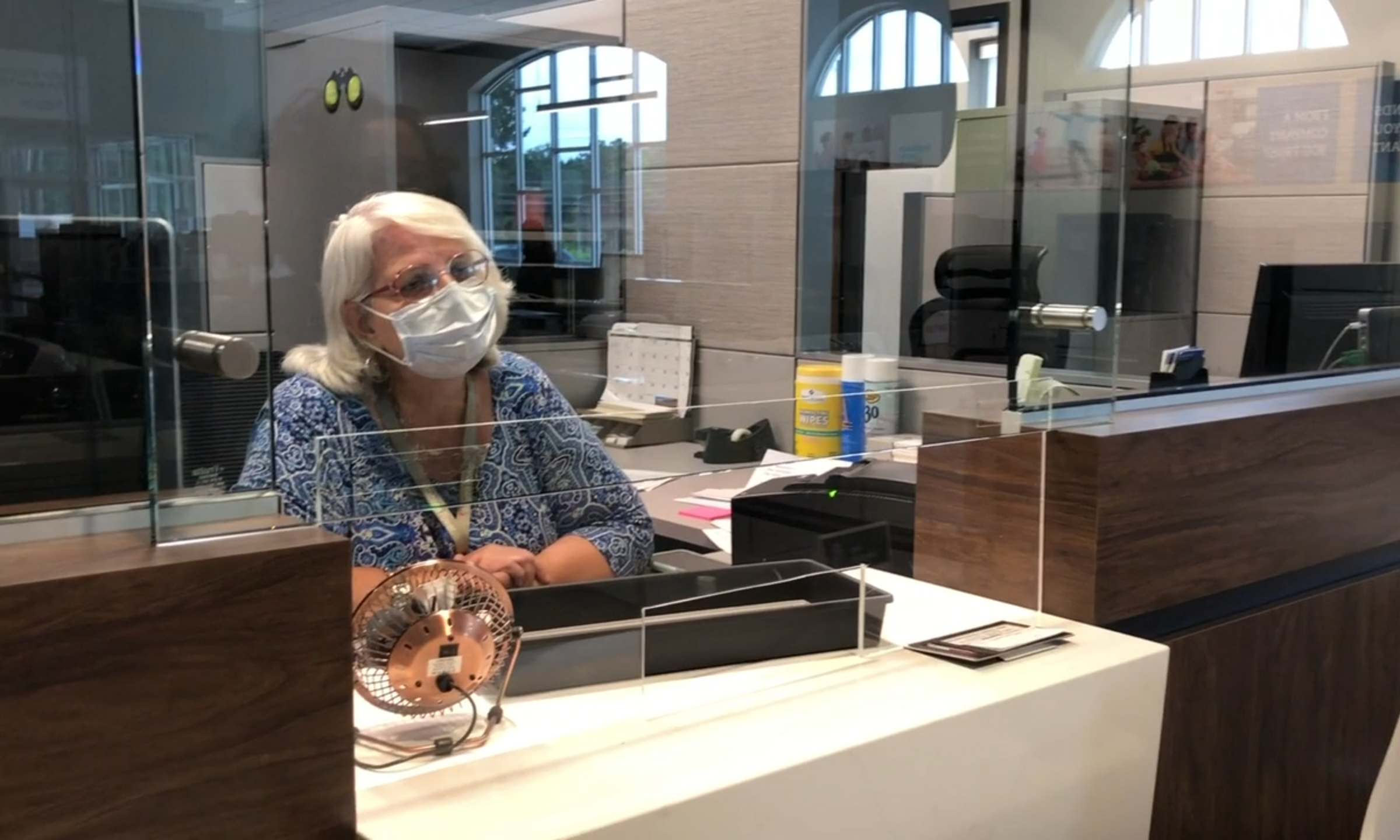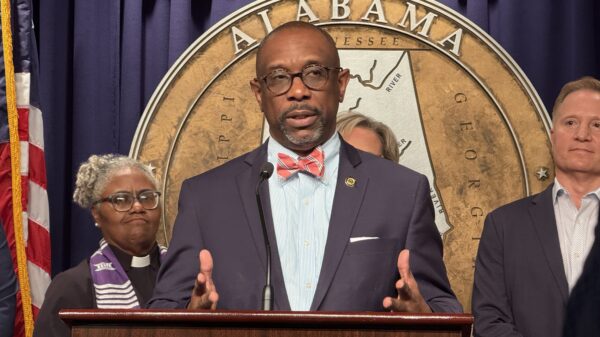The Alabama Power Company has reopened its business office lobbies, which have been closed since March due to fears of the coronavirus.
“We are ready to be back, welcoming the customers because we’ve missed them,” said Sandra Tucker who works in the Jasper Alabama Power office and Appliance Center. “Just to see their face, to interact with them and to be able to help them, we’re excited about that.”
Tucker is one of several customer service representatives who help Alabama Power customers in and around the Jasper area. Tucker says that she and her colleagues have missed seeing the faces of their customer “family” since the company adjusted walk-in operations at its business offices in March.
“We are a friendly family that just wants to help our customers,” Tucker said. “It’s just an opportunity to serve them that we haven’t been able to do since this pandemic started. We’re just excited to see them.”
Supporting customers affected by COVID-19 with tailored, customized solutions to meet their needs remains a priority as the Alabama Power Company continues to navigate the pandemic. As part of that solution, the company this week announced it has safely and responsibly resumed walk-in operations at its business offices and Appliance Centers.
Alabama Power says the reopened offices are in compliance with safety best practices. Walk-in customers are asked to comply with signs in the offices to ensure Centers for Disease Control and Prevention guidelines are followed to protect the safety and health of both fellow customers and Alabama Power employees. The offices are also limiting customer capacity at the offices to further hinder virus spread.
“Customers who visit their local business office will see new safety updates and precautions installed to protect the well-being of them and our employees,” said Alabama Power’s senior vice president of Customer Operations Jonathan Porter. “We have been thoughtful and detailed in our plans to provide the safest and best experience for our customers.”
The Alabama Power Company said in a statement that its commitment to customers and the communities we call home has not wavered.
The company says that it has mobilized and enacted programs and policies to support residential customers, businesses and communities.
To help customers facing economic or medical hardships due to COVID-19, Alabama Power is offering new payment plans. This new offering allows customers to spread out energy bill balances over several months. To enroll, customers can visit https://www.alabamapower.com/residential/billing-and-payment-options/payment-plan.html or use the automated system at 1-800-245-2244 to check eligibility and set up a plan in a few simple steps.
Since the state of emergency was declared in March, Alabama Power has not disconnected or charged late fees to any customer affected by COVID-19. The company says that it will return to standard business operations for customers on September 28.
Standard business operations include the following services for residential and business customers: Responsibly reopening walk-in services at Alabama Power business offices and Appliance Centers; Continuing to work individually with customers on payment assistance resources; and Using multiple channels to notify customers behind on payments options to maintain service.
Alabama Power also offers several programs designed to help low-income, elderly or disabled customers with energy bills.
Project SHARE is a program in partnership with the Salvation Army. Project SHARE helps pay energy bills of low-income Alabamians who are age 60 or older and/or disabled. Customers who want to request energy assistance can apply at their local Salvation Army office or by calling 205-328-2420. Alabama Power customers who want to help others can donate by checking the Project SHARE box on their Alabama Power bill.
The Alabama Business Charitable Trust Fund works with local community action agencies to help cover the cost of heating and cooling for low-income families and those struggling with temporary financial problems. Customers who are interested can contact the community action agency in their county. For more information, visit this website.
Additionally, energy bill discounts are available for customers receiving Supplemental Security Income (SSI) or Medicaid for Low Income Families (MLIF). The discount includes $14.50 toward the customer charge. Eligible customers can sign up at any Alabama Power business office or by phone at 1-800-245-2244.
In addition to these programs, the Alabama Power Foundation continues to support organizations in the state through a $1 million pledge for COVID-19 relief efforts.
The company says that its customer service team stands ready to work individually with customers who need help. Customers are encouraged to reach out for support online at AlabamaPower.com or call 1-800-245-2244.
Alabama Power warns that it has continued to see an uptick in scammers taking advantage of customers during the pandemic. The company said that it will never contact customers demanding bank information or an immediate payment on accounts. Customers who are unsure if a call is a scam are encouraged to hang up immediately and contact Customer Service at 1-800-245-2244.
Alabama Power Company, Mississippi Power, and Georgia Power are the three divisions of the Southern Company. Southern Company has 27,943 employees and a market cap of $56.1 billion.



















































